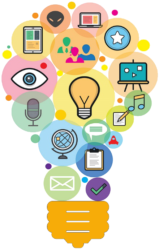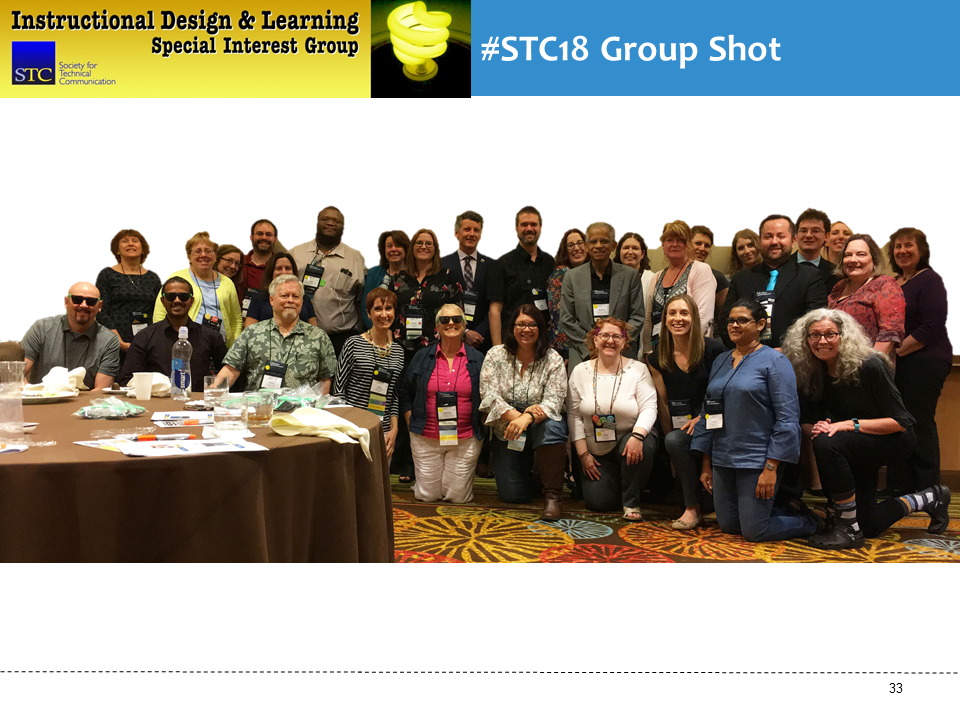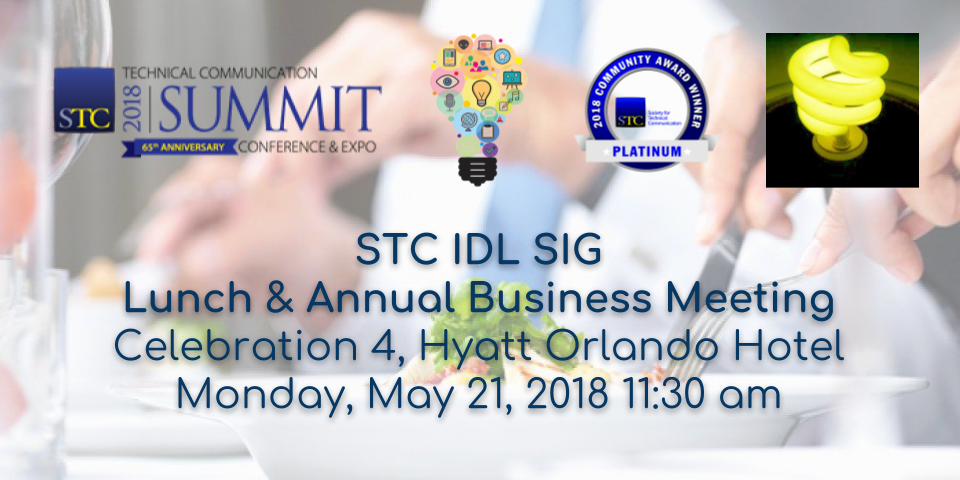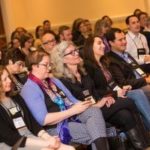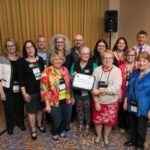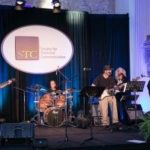By Viqui Dill
#STC18 IDL SIG Presentations
https://summit.stc.org/schedule/
STC IDL SIG Lunch & Annual Business Meeting
Monday, May 21, 2018 11:30 am
Location:
Celebration 4, Hyatt Orlando Hotel
9801 International Drive, Orlando, FL 32819
Save the date for our annual business meeting in Orlando. We will be meeting in Celebration 4 at the Hyatt and lunch will be on us! Come hear about what we offer, what we’ve accomplished, and how you can get involved.
Questions? Contact manager@stcidlsig.org
Presentations by IDL members
Sunday, 20 May
Workshop: Temperament-based Strategies for Excelling in the Workplace
Ben Woelk
1:00-4:30 PM | Celebration 7
Practitioner level audience
Temperament types have big impacts on work relationships. Today’s workplace presents challenges for both introverted and extraverted team members. Many workplaces are adopting open space layouts that foster teamwork but provide little opportunities for introverts to contribute as individuals. Extraverts may struggle with working with Introverts. Because of Western society’s emphasis on extraversion, many introverts feel unsuited or ill-equipped to thrive in today’s workplace and are not sure how to take that next step to increase influence and improve visibility. All personality types may have issues working with coworkers or management. Is your manager a Guardian, an Idealist, a Rational, or an Artisan? How does that change how you approach them? Suitable for all attendees, you’ll benefit from understanding your temperament and how you interact best with others. Attendees will benefit most from the workshop if they know their Myers-Briggs/temperament profile in advance. I recommend taking the tests at humanmetrics.com and keirsey.com before attending.
Monday, 21 May
*Yes And…: Improv’ing Your Corporate Communication Skills
Co-facilitated by Jack Molisani & Ben Woelk
Monday, 21 May | 1:00-3:00 PM EDT | Celebration 14
Tuesday, 22 May | 1:00-3:00 PM EDT | Celebration 14
Have you ever been caught off-guard by an unexpected question from your boss? Or wanted to network at a meeting but didn’t know what to say? The Alan Alda Center for Communicating Science works with scientists to help them communicate complex topics clearly and engagingly using principles from Improv (improvisational) Comedy. The facilitators will introduce you to the basics and Improv comedy, then lead you through exercises designed to improv your organizational communication skills. This session offers an exclusive interactive learning experience, and extended networking opportunity.
*This is a paid workshop session offered Monday and repeated Tuesday during the conference. Only 40 tickets ($20/person) will be sold via the Summit registration site. Please do not delay in purchasing one if you want to participate as it is likely this will sell out! Because improv must be done in small groups, we can only accommodate 20 people in the workshop on Monday, and 20 people on Tuesday. Attendees MUST purchase a ticket and bring it with them to the workshop on the day they selected.
Meet the Editors
Andrea Ames & Sam Dragga
10:30-11:20 AM | Celebration 1-2
Foundation level audience
The new editor of Intercom magazine, Andrea Ames, and the editor of Technical Communication, Sam Dragga, will host a session with conference participants and STC’s section editors and columnists. Andrea and Sam will explain the missions of their publications, editorial processes, recent submission trends, and other topics of interest for scholars and practitioners looking to publish or serve as reviewers. The aim of the session is to help prospective authors understand how to contribute to STC publications. Participants will have the opportunity to comment and ask questions of the editorial teams.
The Introvert in the Workplace: Becoming an Influencer and Leader
Ben Woelk
10:30-11:20 AM | Celebration 12-13
Foundation level audience
Many introverts struggle to succeed in the workplace when asked to “think on their feet” or to make decisions without an array of facts in hand. Much workspace design is moving to open plans, where anyone, much less introverts, may struggle with distractions and lack of privacy. Some introverts may look for leadership opportunities, but feel stymied when trying to figure out how to move up. Although not every introvert is interested in a formal leadership position (nor have the opportunity in their workplace), every introvert has the ability to become an influencer.
Join the presenter as we discuss how to identify our strengths and become influencers when we don’t have positional authority. We’ll discuss strategies that work for us and how to make sure we’re not passed over when leadership opportunities arise. We’ll also create an action plan for becoming that influencer or leader. Attendees will benefit most from the presentation if they know their Myers-Briggs/Keirsey temperament profile in advance or have used other tools such as Enneagram or Strengths Finder.
Dethrone the Content King! Culture is the True King!
Jamie Gillenwater
1:00-1:50 PM | Celebration 7-8
Practitioner level audience
In every career path, professionals help others. As a content professional, what problem do you solve? We often think content is the solution, but what is the real problem? The culture of a company influences customer, employee, and vendor relationships more than any other business asset. In this session, we will discover the relationships between the players, along with how to change your company’s culture. We will discuss the following aspects of company culture:
- Talent acquisition
- Talent development
- Hidden biases
- Leadership
We will discuss how each of these pieces fit together for success, along with tools and techniques for assessing and addressing each of these areas.
Learning Environment Modeling Language (LEM): The New Language of Instructional Design
Phylise Banner
2:10-3:00 PM | Celebration 5
Practitioner level audience
This session will introduce to an easy-to-use and powerful visual learning design method called Learning Environment Modeling (LEM) — a unique visual language created to enhance communication and foster collaboration between instructional design professionals and diverse stakeholders. During the session, participants will learn how to:
- Visually communicate the correlation of specific design elements to learning results.
- Use Learning Environment Modeling (LEM) to collaborate effectively with blended learning project teams and clients.
- Facilitate more effective communication throughout the design process.
- Use a learning environment design system and tool to remove or reduce ego-centric behaviors and attitudes during the design process. Join us to explore how LEM supports creative learning experience design and removes barriers to communication throughout the learning design process.
Managing the Team and the Project Management Panel
Moderator: Marilyn Woelk
Panelists: Todd DeLuca, Jamie Gillenwater, Jennifer Shumate, & Marilyn Woelk
3:45-4:35 PM | Celebration 1-2
Join us for a discussion on the many different aspects of management. Find inspiration and practical help for your management challenges! Learn new tips for being an effective, motivated, and successful leader! Whether you are a new manager, a manager who needs greater challenges and better results, or a professional who is thinking about becoming a manager, you will benefit from this session!
Tuesday, 22 May
Lessons Learned: What Harry Potter Professors Teach Us About Instructional Design
Jamye Sagan
1:00-1:50 PM | Celebration 5
Foundation level audience
As technical communicators, we can help communicate the future by being ready to tackle any project we receive – even ones outside our realms of expertise. For instance, our clients and employers may ask us to help develop training materials and programs, even if we have never formally studied instructional design. Education plays a crucial role in the Harry Potter series by J.K. Rowling. At Hogwarts, the school where Harry Potter and his friends study magic, we witness several examples of instruction in action. Each of these professors – whether terrible or terrific –has important lessons to share with us regarding effective instructional design and training delivery.
In this presentation, we will profile various Hogwarts professors, and analyze the effectiveness of their lesson delivery. Within the lens of each professor profile, we will share practical tips on tackling common training issues, as well as provide some real-life (aka Muggle) training examples. By the end of the presentation, you will have the necessary tools to confidently tackle many basic training requests. Even if you have neither read the Harry Potter books nor watched the movies, you can still learn something from the Hogwarts professors.
Lights, Camera, Action! Exploring Video Basics for Non-Production Professionals
Darcy Beery & Stacy Barton
2:10-3:00 PM | Celebration 9-10
Practitioner level audience
Given the choice between finding the user manual or googling a short video on YouTube, many users would prefer to both hear and see the information being presented, especially younger generations who have been raised with technology. The basic concepts of video production need no longer be shrouded in the the mysterious aura of Hollywood as consumer technology has become both cost effective and highly professional. If you or your company have been toying with the idea of producing videos for clients or customers, but have fretted about the costs or effectiveness of this method, take heart it is now easier and more anticipated than ever before.
Teaching Technical Writing to Engineers – What Works?
Noel Atzmiller
4:00-4:50 PM | Celebration 5
Practitioner level audience
This session is intended for technical communicators who have been tasked with providing technical writing training to engineers (and other highly educated, technical individuals). Attendees receive information about 10 lessons learned that they can use when developing and leading their training sessions.
Wednesday, 23 May
We Stoop to Conqquer: Adjusting to Mediocrity
Li-At Rathbun
10:10-11:00 AM | Celebration 5
Foundation level audience
When our boss or client says “good enough” work is good enough, shouldn’t it be good enough? Why is it a struggle to produce mediocre work when that’s what the customer wants? Yes, one day the powers-that-be will agree that all documentation must be flawless and superb. But how do we survive until that day comes? This session:
- Explores reasons for why mediocre work might be okay
- Teaches us a mantra—for those times we just need to hunker down and deliver so much less than what we’re capable of
- Is a venting session! In our cone of silence, we will close our eyes, use anonymous names, and share our travails. We will learn we are not alone in the trenches of mediocrity!*
* No, of course you’ve never worked on a project of this sort; I’m talking to the others. You’ll just be there “to observe.”
Presentations about IDL topics
Monday, 21 May
Technological Adaptability: Formalizing a Vital Skill
Melonie McMichael
10:30-11:20 AM | Celebration 7-8
Foundation level audience
We talk about it all the time, yet we have no specific word for it. We know it is a needed and valuable skill, yet we do not teach it. We see it as part of our technology skills, yet do not recognize it as a skill on its own. What is this nebulous ability that is so important to our field yet so little quantified? Technological adaptability is the ability to learn technology quickly or deal with technology issues efficiently and with confidence. A skill in and of itself that can be learned and taught, most of us are required to demonstrate this ability to excel in our field. The goal of this session is to establish the significance and application of technological adaptability to our field, to provide our field with a common language to discuss technological adaptability, and to assisting the individual in assessing and expanding on their own adaptability skills.
Learning Environment Modeling Language (LEM): The New Language of Instructional Design
Phylise Banner
2:10-3:00 PM | Celebration 5
Practitioner level audience
This session will introduce to an easy-to-use and powerful visual learning design method called Learning Environment Modeling (LEM) — a unique visual language created to enhance communication and foster collaboration between instructional design professionals and diverse stakeholders. During the session, participants will learn how to:
- Visually communicate the correlation of specific design elements to learning results.
- Use Learning Environment Modeling (LEM) to collaborate effectively with blended learning project teams and clients.
- Facilitate more effective communication throughout the design process.
- Use a learning environment design system and tool to remove or reduce ego-centric behaviors and attitudes during the design process. Join us to explore how LEM supports creative learning experience design and removes barriers to communication throughout the learning design process.
Cognition, Usability, and Design – The Psychology of Design and Use
Kirk St.Amant
3:45-4:35 PM | Celebration 5
Practitioner level audience
Usable objects create and contribute value to the related organization; non-usable ones do not. Technical communicators must therefore increasingly design materials to meet the usability expectations of different audiences. They can thus benefit from approaches that help them understand and address the usability expectations of different groups. This presentation introduces technical communicators – from the novice to the experienced – to cognitive psychology models that can facilitate the design of communication products to meet the usability expectations of different audiences.
Attendees will learn how to:
— Use these models to do research related to the usability expectations of different audiences
— Apply the related findings to create materials that meet the usability expectations of these audiences
— Convey such research and design ideas in ways that connect to and contribute to an organization’s core practices Through using such approaches to guide and discuss their work, technical communicators can more effectively reveal the ways in which they contribute value to their organizations.
Tuesday, 22 May
Lessons Learned: What Harry Potter Professors Teach Us About Instructional Design
Jamye Sagan
1:00-1:50 PM | Celebration 5
Foundation level audience
As technical communicators, we can help communicate the future by being ready to tackle any project we receive – even ones outside our realms of expertise. For instance, our clients and employers may ask us to help develop training materials and programs, even if we have never formally studied instructional design. Education plays a crucial role in the Harry Potter series by J.K. Rowling. At Hogwarts, the school where Harry Potter and his friends study magic, we witness several examples of instruction in action. Each of these professors – whether terrible or terrific –has important lessons to share with us regarding effective instructional design and training delivery.
In this presentation, we will profile various Hogwarts professors, and analyze the effectiveness of their lesson delivery. Within the lens of each professor profile, we will share practical tips on tackling common training issues, as well as provide some real-life (aka Muggle) training examples. By the end of the presentation, you will have the necessary tools to confidently tackle many basic training requests. Even if you have neither read the Harry Potter books nor watched the movies, you can still learn something from the Hogwarts professors.
Lights, Camera, Action! Exploring Video Basics for Non-Production Professionals
Darcy Beery & Stacy Barton
2:10-3:00 PM | Celebration 9-10
Practitioner level audience
Given the choice between finding the user manual or googling a short video on YouTube, many users would prefer to both hear and see the information being presented, especially younger generations who have been raised with technology. The basic concepts of video production need no longer be shrouded in the the mysterious aura of Hollywood as consumer technology has become both cost effective and highly professional. If you or your company have been toying with the idea of producing videos for clients or customers, but have fretted about the costs or effectiveness of this method, take heart it is now easier and more anticipated than ever before.
Teaching Technical Writing to Engineers – What Works?
Noel Atzmiller
4:00-4:50 PM | Celebration 5
Practitioner level audience
This session is intended for technical communicators who have been tasked with providing technical writing training to engineers (and other highly educated, technical individuals). Attendees receive information about 10 lessons learned that they can use when developing and leading their training sessions.
Wednesday, 23 May
Can You Hear Me Now? Podcasting as a Teaching Tool
Jennifer Goode
9:00-9:50 AM | Celebration 5
Practitioner level audience
Podcasting is one of the fastest growing areas of content production today. How can technical communication instructors capitalize on this rapidly expanding technology? This session will demonstrate how students can develop technical skills, increase content knowledge and understanding, and refine communication skills as they create podcasts for their course projects. It will also introduce the tools and technology necessary to set up your own course podcasting project. Finally, the session will share instructor and student reflections from a recent course that used podcasts as a major course project.
Events and presentations of interest
Sunday, 20 May
Leadership Program
8:00 AM-Noon | Celebration 5-6
The Leadership Program is hosted by STC’s Community Affairs Committee (CAC). It is designed to recognize innovative communities, provide STC community leaders with training in best practices for a successful community, and enable community leaders to network with their peers from across the country. The Community Achievement Award and Pacesetter Award winners will be announced at this session.
Welcome Reception and Expo Hall Open
5:00-6:30 PM | Windermere Ballroom
Attend the welcome reception in the expo hall and catch up with old friends, network, and meet exhibitors. There will also be a cake cutting ceremony in honor of the 65th anniversary.
Monday, 21 May
Opening General Session-Opening Keynote Speaker
Carla Johnson
9:00-10:15 AM | Windermere Ballroom
Carla is a popular speaker, author, storyteller, and Chief Experience Officer for Type A Communications. Her keynote address, “Perpetual Innovation,” will talk about how the world’s most innovative teams create great ideas to deliver exponential outcomes. Don’t miss her talk during the Opening General Session on Monday morning, 21 May, at 9:00 AM.
Pub Crawl Event Hosted by the Florida Chapter
Florida Chapter
7:30-10:30 PM
Orlando Restaurants
Come join us for a fun night of networking, relaxing, and socializing with other 2018 STC Summit attendees. …and what better way to do all that than with a “pub crawl”
We are currently finalizing our starting points, which are located in two major gathering points on International Drive: “Pointe Orlando” and “I-Drive 360,” home to the Orlando Eye.
Pointe Orlando is within walking distance of the hotel, while I-Drive 360 is a bit further away and can be reached by car (free parking available), Uber/Lyft/Lynx, or by riding the I-Drive Trolley, which runs until 10:30PM (2 tickets to the trolley are included for those staying at the host hotel).
Stay tuned for more information!! We will be posting the pub list soon, as well as instructions on what you need to do to attend. Please note that you must be a Summit attendee to attend this event.
If you are interested in knowing more about this event, please mark “Interested” to follow this event page and receive updates. The Florida Chapter looks forward to seeing you there! https://www.facebook.com/events/927923110709784/
Tuesday, 22 May
65th Anniversary Town Hall Meeting
Rhyne Armstrong & Julie Dwyer
10:10-11:00 AM | Celebration 1-2
It’s the Summit’s 65th anniversary, and what have we learned over the years? …Technology moves quickly, and whether we’re writing and designing for hardware and software—or robots and AI, we technical communicators are always expanding our knowledge and resources to prepare for the future.
As we prepare for the future of STC, join our town hall session to tell tales, ask questions, and discuss constructive ideas.
How can individual members contribute to the future of STC? What lessons learned do you think everyone should know? How can we innovate for the future? Whether you’re a new or seasoned member, don’t miss this opportunity to help shape the future of your organization.
Certified Professional Technical Communicator (CPTC) Q&A Session
Craig Baehr & Liz Pohland
2:10-3:00 PM | Celebration 1-2
Practitioner level audience
Join CEO Liz Pohland, Chief Examiner Craig Baehr, and CPTC trainers to talk about the program and your questions about becoming professionally certified. These experts will answer questions on everything including study strategies, resources, continuing education, and other aspects of the program.
Annual Business Meeting
5:30-6:30 PM | Windermere Ballroom
STC’s Annual Business Meeting will be held on Tuesday, 22 May, at 5:30 PM. Plan to attend to congratulate STC’s 2018-2019 Board of Directors and incoming STC President Jane Wilson. Click here to view the rules for the meeting.
Diner Meetup Hosted by the Florida Chapter
Florida Chapter
7:30-10:30 PM
Orlando Restaurants
What is a “diner meetup” you might ask?
It’s a fun event that lets you meet, socialize, and network with other 2018 STC Summit attendees in a relaxing environment while enjoying some amazing Orlando cuisine.
We are currently finalizing the list of participating restaurants, which are located in two major gathering points on International Drive: Pointe Orlando and I-Drive 360, home to the Orlando Eye.
Pointe Orlando is within walking distance of the hotel, while I-Drive 360 is a bit further away and can be reached by car (free parking available), Uber/Lynx, or by riding the I-Drive Trolley, which runs until 10:30PM (2 tickets to the trolley are included for those staying at the host hotel).
Stay tuned for more information!!! We will be posting the restaurant list soon, as well as instructions on what you need to do to attend. Please note that you must be a Summit attendee to attend this event.
If you are interested in knowing more about this event, please mark “Interested” to follow this event page and receive updates. The Florida Chapter looks forward to seeing you there! https://www.facebook.com/events/235244520352265/
Wednesday, 23 May
Honors Event – Keynote Speaker
Andy Hines
11:15 AM-1:00 PM | Windermere Ballroom
The Honors Event is the last event of the Summit and will be held Wednesday, 23 May, at 11:15 AM. Brunch will be served with this event and Andy Hines will wrap up what you learned about “the future of how we work, where we work, and you at work” at the Summit. Additionally, we’ll celebrate STC’s individual award winners, as well as the Most Improved Community and Community of the Year recipients.
